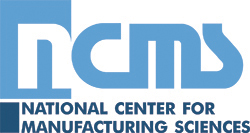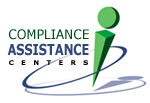| Presented in Partnership with: | |||
 |
 |
||
Historical Articles
January, 1954 issue of Plating
EDITORIAL
Ion Exchangers in Plating Bath Analyses—A Forecast
PROOF THAT the use of ion exchangers in metal-finishing operations is an accepted industry technique is evident in the consistently growing application of the method in metal ion recovery from rinse waters and in the treatment of water for process lines.
The article in this issue by Mr. Gabrielson of Sweden tells of another valuable use for these materials. While the use of ion exchangers in analytical chemistry is not new, the determination of boric acid, a major constituent of many plating baths, through utilization of a sulfonic acid resin exchanger, is novel and of interest to platers. The procedure yields repetitively accurate results and appears to be a forerunner of additional practical applications for such “ion-trading” materials in other-analytical methods.
By coincidence, convincing extra evidence to such a belief is provided in this issue in the book review by Dr. Harold Read. He states that “one can see many possible applications to the analytical problems of metal finishing, particularly to the determination of impurities and addition agents in plating baths.”
It is a matter of record that the reporting of new methods has stimulated further work along similar lines in the past. Through identical effort in this instance, improved techniques that offer practical advantages will be found and, no doubt, will be published for the benefit of all. To this end, the first-time release of the new procedure is another reaffirmation of the dedicated aims of the Society as printed on the masthead of this journal.
— Al Korbelak
 |
 |
 |
The information contained in this site is provided for your review and convenience. It is not intended to provide legal advice with respect to any federal, state, or local regulation.
You should consult with legal counsel and appropriate authorities before interpreting any regulations or undertaking any specific course of action.
Please note that many of the regulatory discussions on STERC refer to federal regulations. In many cases, states or local governments have promulgated relevant rules and standards
that are different and/or more stringent than the federal regulations. Therefore, to assure full compliance, you should investigate and comply with all applicable federal, state and local regulations.